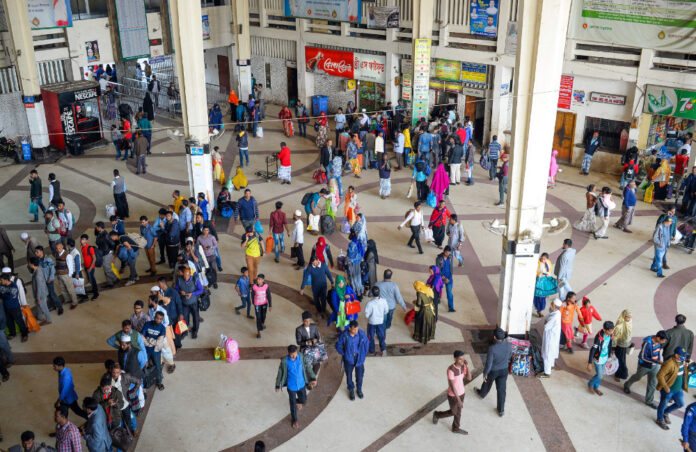DHAKA: The Bangladeshi government was likely to continue trade with Moscow, experts said on Friday, after Dhaka’s announcement that it would try “alternative measures” in the face of international sanctions following Russia’s invasion of Ukraine.
Russia is one of Bangladesh’s main trading partners and its biggest supplier of wheat and fertilizer. It also has a major presence in the country’s energy sector, and is developing its first nuclear power plant, at Rooppur.
Russia’s multipronged assault on Ukrainian territory, which began on Feb. 24, has been followed by a host of measures to cut Moscow off from the world’s financial arteries, including banning some of its banks from the Swift payment system that is key for the transaction of money worldwide.
Bangladeshi Finance Minister Mustafa Kamal told reporters on Thursday that while Dhaka wanted the war to stop, it would “have to take alternative measures through currency swap” if it was not able to pay Russia due to the Swift ban.
In a currency swap, countries exchange their local currency against any third currency, except the US dollar.
Faruq Mainuddin, executive committee chairman of Brac Bank, one of Bangladesh’s key banks for small- and medium-sized businesses, told Arab News that Russia was a big market that Bangladesh “can’t afford to lose.”
“In this case currency swap can be a suitable option for us,” he said. “If the economic sanctions on Russia continue for a longer period, Bangladesh may resort to the Chinese currency, yuan, for continuing trade with Russia.”
Both Bangladesh and China were among the countries that abstained from voting when the UN General Assembly on Wednesday overwhelmingly demanded that Moscow stop fighting and withdraw its military forces from Ukraine.
Mainuddin said that with alternative options Bangladesh would, however, incur higher trading costs as “no other currency has a stable rate in international markets other than US dollars.”
“Businesses will suffer if they are forced to switch over to other currencies,” he added.
Zahid Hussain, former lead economist of the World Bank in Dhaka, told Arab News that the situation was “very complicated” for Bangladesh.
“At present there are seven Russian banks which came under the economic sanctions and were barred from Swift banking channels. But there are 300 more banks in Russia. We may consider initiating transactions with these banks,” he said.
“Our finance ministry should initiate strong monitoring and analysis of the situation to calculate the costs of doing international transactions with Russia amid these sanctions.”
He pointed out that sanctions would also affect the construction of the Rooppur nuclear plant, a $13.5 billion project financed mostly by Russia which is scheduled to be fully operational by 2024.
“We are yet to receive many (items of) heavy equipment from Russia for the RNPP,” he said. “Even if Russia can prepare the equipment, I don’t know if they can transport it to Bangladesh.”

